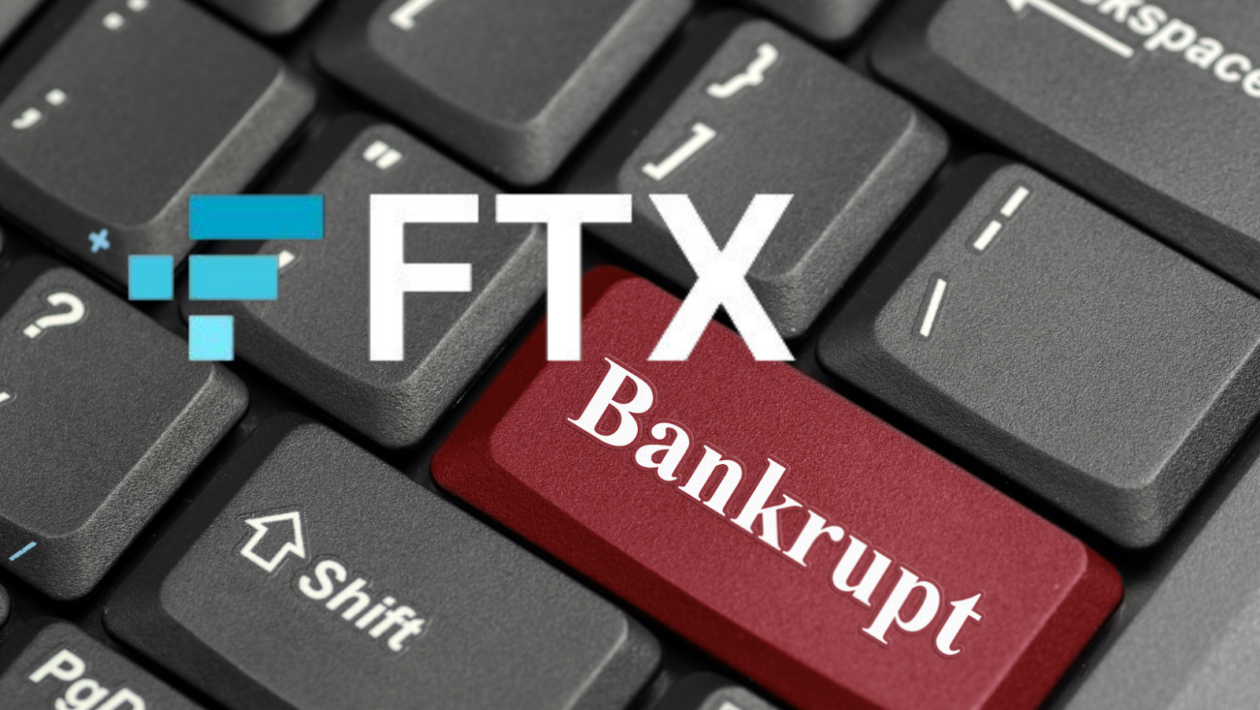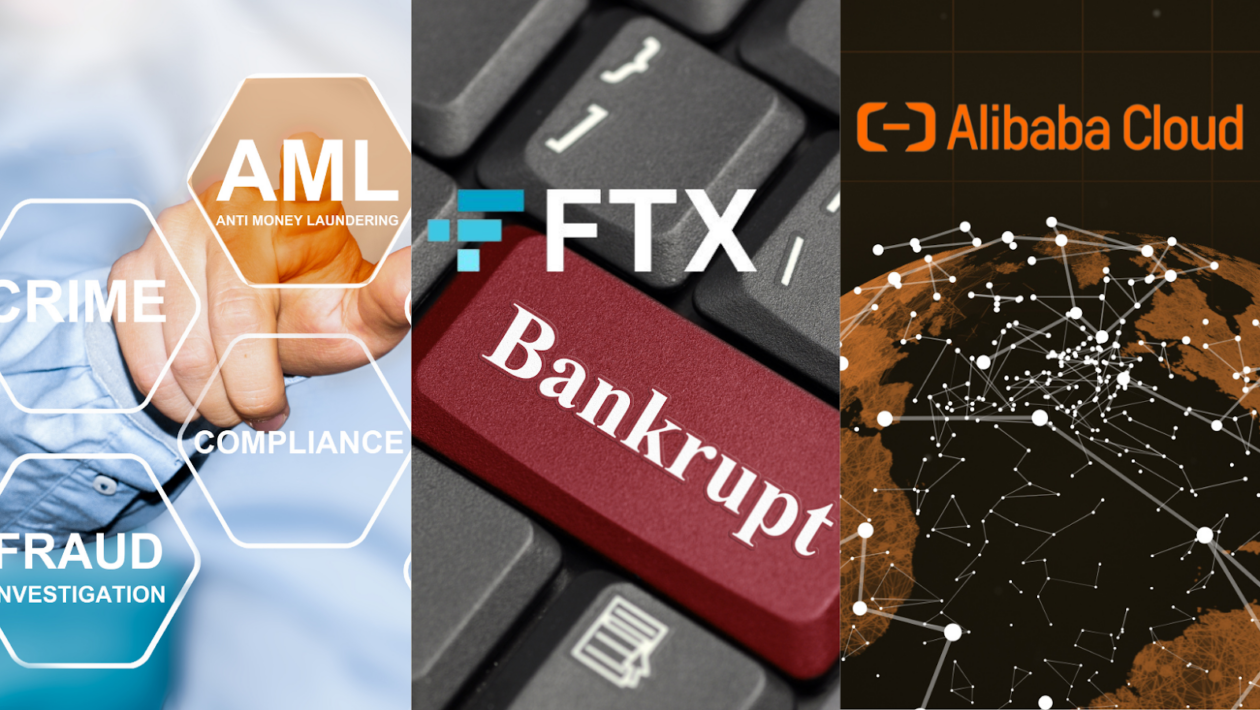In this issue
- U.S. digital asset bill: Crypto compliance
- Sam Bankman-Fried: Trying times
- Alibaba Cloud: Winds of change
From the editor’s desk
Dear Reader,
The cryptocurrency industry has long been accused of playing by its own rules — or no rules at all, in the case of recent crypto collapses in which investors have lost their shirts. Now, in the wake of those failures, it looks as though the sector may have to start playing by the same rules as other segments of the finance industry.
That’s the message coming from Washington, at least, with the introduction of a bipartisan bill that, if passed, will require crypto companies to implement the same know-your-customer (KYC) procedures that banks are obliged to carry out.
The prospect of legally mandated KYC standards has prompted something of a backlash in parts of the cryptocurrency community, and, to give the critics their due, it does run counter to the crypto ethos of decentralization and autonomy. Yet even before the spectacular implosions of Terra LUNA and FTX, and the wave of busts that they triggered, many in the industry had been clamoring for regulation — including FTX founder Sam Bankman-Fried himself.
Whether the regulatory regime that emerges from the proposed new law achieves what its Senate backers want is uncertain — particularly if it makes self-custody of crypto assets complicated to the point where investors are driven into the arms of big, centralized exchanges such as the once high-flying FTX.
And how effective the new system might be when it comes to preventing another FTX-style meltdown remains questionable. After all, the conduct of which FTX stands accused involved a governance vacuum and operational opacity, alongside other behaviors that are already illegal.
Nevertheless, regulation can always be debated and adjusted if it’s not achieving the desired results, and crypto investors and the companies that serve them are likely to benefit from having rules in place to keep all participants on the straight and narrow.
The regulatory arbitrage that distinguished the crypto industry in its early days has led it to a rather unhappy place. Now is the time for a dose of discipline as the sector learns from the mess that lack of rules helped to create and embarks on the next leg of its journey — and as we head into the festive season, it’s also an opportune time to take stock of how far we’ve come.
All of us here at Forkast wish our readers a very happy holiday season and, after a year many of us might prefer to forget, a 2023 of fresh advances and achievements in our industry.
Until the next time,
Angie Lau,
Founder and Editor-in-Chief
Forkast
1. Rules of engagement

By the numbers: Self-custody — over 5,000% increase in Google search volume.
United States Democratic Senator Elizabeth Warren of Massachusetts and Republican Senator Roger Marshall of Kansas have introduced legislation that would require crypto firms in the U.S., including providers of unhosted wallets, to follow the same know-your-customer (KYC) rules as banks in order to prevent money laundering.
- “Crypto doesn’t get a pass to help the world’s worst criminals… It is time for Congress to make the crypto industry follow the same money laundering rules as everybody else,” Senator Warren told a hearing on the bankruptcy of FTX on the same day the bill was released.
- The new bill, named the Digital Asset Anti-Money Laundering Act, seeks to mandate KYC requirements on the crypto industry to combat money laundering, requirements that have long been in place in the traditional financial system.
- “It is illegal for a bank to take money from terrorists, and that’s why banks spend so much time and so much energy identifying who their customers are and reporting suspicious activity to authorities,” Warren said. “A lot of crypto firms are not doing these kinds of checks.”
- In addition to requiring crypto exchanges, wallet providers, miners and validators to identify users and track transactions, the bill would prevent businesses from using crypto mixers such as Tornado Cash and other crypto-privacy tools.
- Crypto advocacy group Coin Center was critical of the bill, calling it “an opportunistic, unconstitutional assault on cryptocurrency self-custody, developers and node operators.”
- The proposed legislation comes during a period of rising interest in self-custody of crypto assets and following the indictment of FTX founder and former chief executive Sam Bankman-Fried for money laundering and defrauding customers.
- “Holding your own crypto in your wallet is not risk-free,” warned Binance co-founder and chief executive Changpeng “CZ” Zhao in a Twitter Spaces discussion the day the bill was released.
- “For 99% of people today, asking them to hold crypto on their own, they will end up losing it,” said Zhao, adding that most users wouldn’t properly back up their security keys and could lose their cold wallets.
- Zhao said that people who understood self-custody should opt for it, but added that more people lose crypto through self-custody than through centralized crypto exchanges.
Forkast.Insights | What does it mean?
“Not your keys, not your crypto.” If there were ever a cryptocurrency bible, that phrase would surely be in it. Cryptocurrencies are designed for self-custody, allowing users to take ownership of their assets without having to hide bundles of cash under their beds.
That was before the advent of centralized cryptocurrency exchanges.
Whether it’s due to a lack of know-how or just a preference for comfort, many investors appeared to be just fine with keeping their digital assets on exchanges. But as happened during the recent implosion of FTX, a run on an exchange can cause users to lose their funds. That fact reveals the irony of Senators Elizabeth Warren and Roger Marshall’s proposal: Their bill has put self-custody, an alternative to centralized exchanges, in U.S. lawmakers’ crosshairs following the collapse of the world’s one-time third-biggest centralized exchange, and policymakers elsewhere are likely to follow their lead.
The proposed legislation may irk some crypto purists, but they may well just have to get used to it. Lawmakers around the world are ramping up their efforts to police the digital asset industry, and that means applying standards that for a long time have been uncontroversial in other parts of the financial system.
2. Going for broke

By the numbers: SBF — over 5,000% increase in Google search volume.
Sam Bankman-Fried, the former chief executive of the bankrupt crypto exchange FTX, has dropped his fight against being extradited. He will be transported this week from the Bahamas to the United States, where he faces criminal charges including fraud, conspiracy, money laundering and campaign finance violations.
- In the meanwhile, U.S. lawyers handling FTX’s Chapter 11 bankruptcy are sparring with their counterparts in the Bahamas as both sides accuse the other of a lack of transparency and cooperation.
- FTX attorney James Bromley, in a court hearing in Delaware last week, objected to sharing “dangerous information with the Bahamian liquidators,” arguing that the Bahamian side had worked with Bankman-Fried to undermine the U.S. bankruptcy case and withdraw assets from the exchange in favor of a select group of creditors.
- Bromley’s comments followed a request by lawyers for Bahamas-based FTX affiliate FTX Digital Markets to the U.S. bankruptcy judge for access to FTX data such as the company’s Slack, Google and Amazon Web Services accounts. FTX Digital Markets has filed for Chapter 15 bankruptcy in the Bahamas.
- Bankman-Fried, a U.S. citizen, was arrested in the Bahamas on Dec. 13 at the request of the U.S. government. If convicted of all charges, he faces up to life in prison.
- Separately, the U.S. Securities and Exchange Commission has filed civil charges against Bankman-Fried for orchestrating a years-long fraud involving FTX investors.
- John J. Ray III, the lawyer in charge of the U.S. side of the bankruptcy case and FTX’s new chief executive, criticized Bahamian authorities in testimony before the U.S. Congress, saying that local officials had worked with FTX executives to unfreeze local accounts after the exchange halted customer withdrawals.
- Ray further alleged that Bahamian customers were given access to their assets 24 hours before FTX’s bankruptcy filing, and that about US$100 million was withdrawn by about 15,000 of those customers.
- The Securities Commission of the Bahamas accused Ray of making “misstatements” to “advance questionable agendas” related to the FTX case.
- Ray said that Bankman-Fried might have been attempting to undermine the scope of the U.S. bankruptcy case by filing for FTX’s bankruptcy with Bahamian authorities after moving assets to accounts under their control.
Forkast.Insights | What does it mean?
Although Sam Bankman-Fried’s inevitable court saga is currently only at the prequel stage, it’s setting the stage for one of the most fiercely contested legal battles since actors Johnny Depp and Amber Heard went toe to toe.
But unlike the live-broadcast celebrity drama that took place earlier this year, Bankman-Fried’s case will affect the lives of hundreds of thousands of people around the world.
At first, Bankman-Fried appeared to be limbering up to fight extradition to the U.S., where federal prosecutors slapped him with eight charges, including wire fraud, securities fraud and money laundering. The worst-case scenario for the former crypto poster child could be life in prison.
It seems the conditions at the notorious Fox Hill prison, the only jail facility in the Bahamas, were quick to change Bankman-Fried’s mind.
Fox Hill, known locally as “Fox Hell,” is infamous for its harsh conditions, including “overcrowding, poor nutrition, inadequate sanitation and inadequate medical care” as well as prison cells “infested with rats, maggots, and insects,” according to a 2021 U.S. government human rights report. It was a huge downgrade for Bankman-Fried, who until recently lived in a US$30 million penthouse inside a luxury resort in Nassau.
But now that he’s returning to U.S. soil, Bankman-Fried — who was denied bail by Bahamas authorities — will have another try and likely a much better chance at being released on bail.
3. Blockchain bet

Chinese cloud vendor Alibaba Cloud plans to introduce a blockchain node service for customers outside of mainland China in the first quarter of next year, as part of the company’s global Web3 strategy.
- The blockchain node will be available only outside of China and will offer platforms and developers tools to launch Web3 applications more quickly, as they can use it instead of building and maintaining their own nodes.
- Alibaba Cloud also hopes to be part of Singapore’s plan to move its government services to a commercial cloud environment.
- The launch of the Alibaba Cloud Container Service for Kubernetes and other serverless technologies is part of the push, Raymond Xiao, the company’s head of international industry solutions and architecture told ZDNET, adding that its portfolio includes more than 20 serverless solutions, private key and smart-contract management tools.
- Alibaba established a Web3 strategy team earlier this year to work on infrastructure and products to support its customers’ transition to Web3.
- In 2018, Singapore announced a five-year roadmap to move most of its information technology systems to commercial cloud platforms as part of an effort to speed up digital government services.
- Also known as Government on Commercial Cloud (GCC), the plan aims to give government agencies a framework to adopt commercial services offered by cloud vendors.
- The plan is currently in its second phase, as the government is looking to leverage existing cloud-native solutions and enable development teams to deliver government digital services faster and at a reduced cost. GCC 2.0 on Amazon Web Services was launched in May.
- Alibaba Cloud Singapore’s general manager, Derek Wang, had previously expressed interest in collaborating with the government on GCC.
Forkast.Insights | What does it mean?
Alibaba became a major player in China’s technology space during the height of the Web2 wave, with various e-commerce platforms meeting the needs of a wide range of online shoppers. Now, the tech conglomerate is looking to get into Web3 with its own cloud blockchain service.
One of Alibaba’s major features is end-to-end traceability and anti-counterfeiting measures throughout the supply chain in China, a country where counterfeiting is rife in many industries.
Metaverses are also a big focus for Alibaba. For example, during the annual so-called “Singles’ Day” online shopping extravaganza on Nov. 11, the e-commerce giant offered customers a better shopping experience by deploying extended reality and artificial reality technologies with promotions featuring virtual influencers.
Now, Alibaba is hoping to extend its international reach in blockchain infrastructure by launching its overseas node service. Much like other platform-as-a-service providers, Alibaba Cloud wants to reduce the operational and maintenance time input required of developers.
Alibaba’s Web3 ambition falls in line with China’s national blockchain development strategy and reflects the country’s push to lead internationally in the industry. China’s Blockchain-based Service Network (BSN), a state-backed consortium tasked with building domestic digital infrastructure, earlier this year launched BSN Spartan, a network only for developers outside China.
As Alibaba debuts its node service internationally, it will have to address doubts many may have over privacy, data security and protection, given Chinese tech firms’ notorious history of data leverage. In a nascent, underregulated industry like Web3, in which bad actors sometimes face no consequences and consumer trust is eroding, Alibaba and other tech giants will have to prove their integrity if they want to capture a global customer base with higher expectations of their data privacy.




